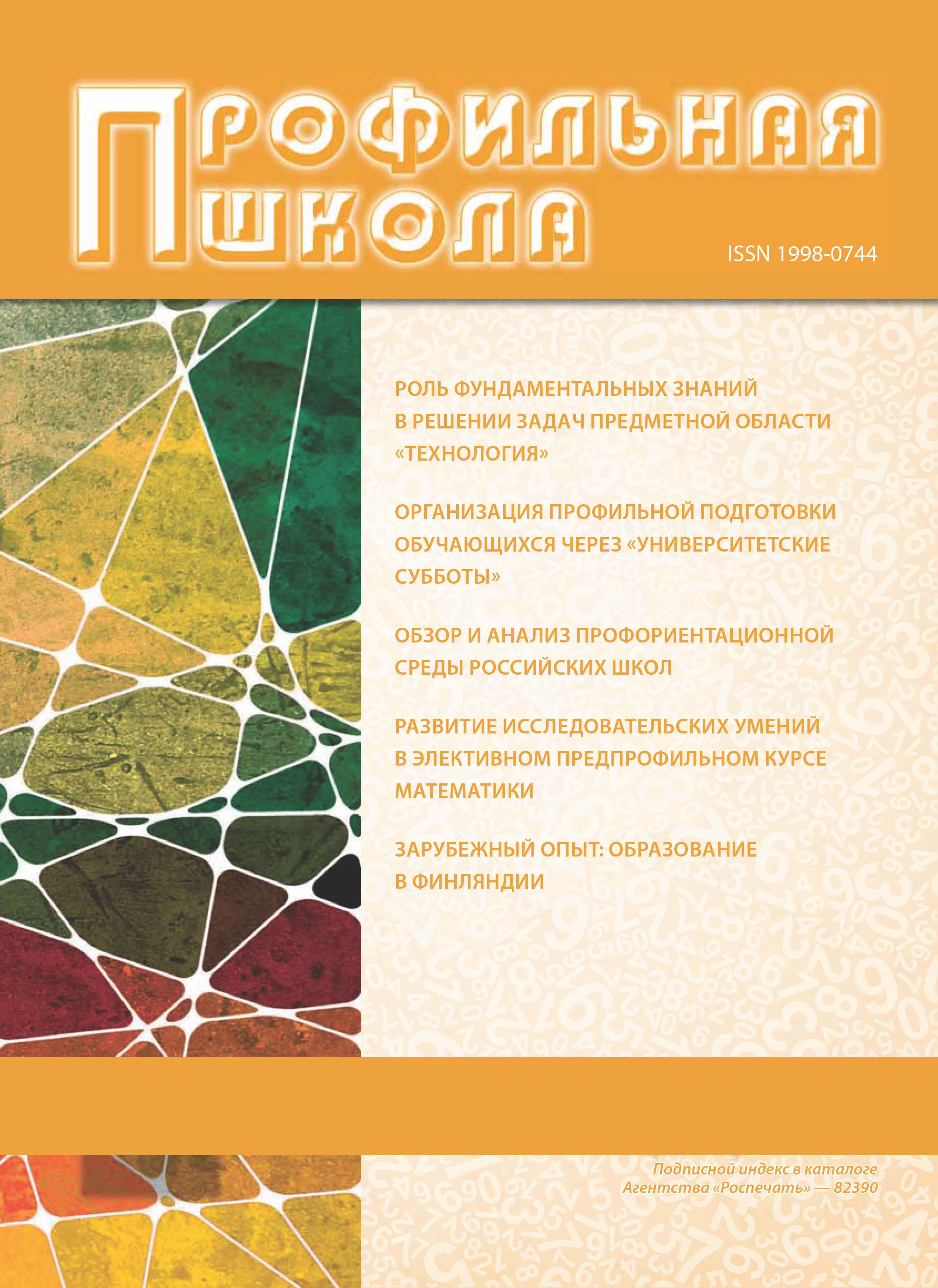Russian Federation
The article investigates the features of humanization and humanization of mathematical education. These characteristics are considered as a theoretical basis for advanced training of teachers of mathematics in the development of the modern system of school mathematics education. A deep analysis of the term “mathematics” in order to understanding and perception o the role and importance of mathematics teachers for the development of civilization, scientifi c and technological progress, as well as the universal language of any modern science is made. Specifi c examples of integration (as replenishment of knowledge) and interpenetration of the content of mathematics and other educational areas (physics, chemistry, Philology, philosophy, etc.), contributing to the quality of school education are given. The emergence of a new modern metamathematics is noted, which is extremely relevant in the process of achieving metasubject learning outcomes by students. Values, opportunities and necessity of development of the personality of the school student by means of the subject “mathematics” are discussed.
humanization of education, humanization of education, mathematics, mathematics education, school mathematics education, mathematics teacher, advanced training of mathematics teachers, integration.
1. Aleksandrov A.D. Matematika i dialektika [Mathematics and dialectics]. Matematika v shkole [Mathematics at school]. 1972, I. 1-2, pp. 15-19.
2. Arnold V.I. Matematika s chelovecheskim litsom [Mathematics with a human face]. Priroda [Nature]. 1988, I. 3, pp. 23-27.
3. Bychkov, S.N. Matematicheskoe i gumanitarnoe obrazovanie: obshchee i osobennoe [Mathematical and humanitarian education: General and special. Moscow, Moscow state University Publ., 2003. 105 p.
4. Galilei G. Dialog o dvukh glavneyshikh sistemakh mira Ptolemeevoy i Kopernikovoy [Dialogue concerning the two chief world system the Ptolemaic and Kopernikovoi]. Moscow, Leningrad, 1948. 380 p.
5. Gassendi. Sochineniya v dvukh tomakh. Tom 2. Akademiya nauk SSSR. Institut fi losofi i [Gassendi. Works in two volumes. Volume 2. Academy of Sciences of the USSR. Institute of philosophy]. Moscow, Mysl’ Publ., 1965. 780 p.
6. Gnedenko B.V. Matematika i matematicheskoe obrazovanie v sovremennom mire [Mathematics and mathematical education in the modern world]. Moscow, Prosveschenie Publ., 1985. 153 p.
7. Dirac P. Printsipy kvantovoy mekhaniki [Principles of quantum mechanics]. Moscow, Nauka Publ., 1979. 408 p.
8. Lukicheva E.Yu., Stepanova G.N. Vospitatel’nyy i razvivayushchiy potentsial predmetov fi ziko-matematicheskogo tsikla [Educational and developmental potential of subjects of physics and math]. St. Petersburg, SPb-APPE Publ., 2014. 104 p.
9. Mukhina I.A. Integratsiya traditsiy i novatsiy v opyte Sankt-Peterburgskikh shkol [Integration of traditions and innovations in the experience of St. Petersburg schools]. Postdiplomnoe obrazovanie: problemy, opyt i perspektivy : Materialy IV mezhdunarodnoy nauchno-prakticheskoy konferentsii kafedry pedagogiki i andragogiki [Postgraduate education: problems, experience and prospects. Materials of the IV international scientifi c-practical conference of the Department of pedagogy and andragogy]. St. Petersburg, 2004, pp. 158-159.
10. Pasternak B. Chto takoe chelovek [What is a man]. XX vek i mir [XX century and the world]. 1989, I. 5, pp. 32-33.
11. Rosov N.H. Feliks Kleyn i ego erlangenskaya programma [Felix Klein and his Erlangen program]. Matem. prosv. [Math. Education]. Moscow, MTSNMO Publ., 1999, pp. 49-55.
12. Strogalov A.S., Shekhovtsov S.G. Matematika kak gumanitarnaya nauka [Mathematics as a Humanities science]. Moscow, MSU Publ., 2002. 85 p.
13. Fisher K. Dekart, ego zhizn’, sochineniya i uchenie [Descartes, his life, writings and teachings]. St. Petersburg, 1906. 460 p.
14. Shikin E.V. O matematicheskoy sostavlyayushchey gumanitarnogo obrazovaniya [On the mathematical component of humanitarian education]. Moscow, MSU Publ., 2000. 200 p.






